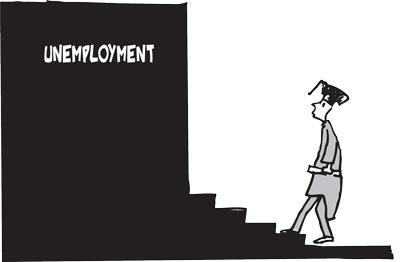Reply To:
Name - Reply Comment
With the Covid-19 pandemic continuing and the number of patients virtually doubling in some parts of the United States, many social analysts also see a blessing emerging out of this catastrophe with historic worldwide movements for racial equality and social justice. In recorded history it is possibly the first time that such a worldwide movement is campaigning to bring about a just and fair society. Happily the movement is being led mainly by young women and men perhaps because the world needs youth leadership in a situation where in most countries, including Sri Lanka and the US, the main political leadership is more like a “Mahalu Madama”. In Sri Lanka’s main political parties the top leadership comprises those who are in their late 60’s or mid 70’s. One of Sri Lanka’s brightest political stars Eran Wickramaratne—widely admired for his integrity and excellence—told the Daily Mirror in an interview yesterday that he left the main UNP because a chance was not being given for a youth leadership in the decision making process.

On Wednesday July 15, the United Nations marks the Youth Skills Day with the theme being “skills for a resilient youth in the era of Covid-19 and beyond”. In a statement the UN says this day is being marked in a challenging context. The COVID-19 pandemic and lockdown measures have led to the worldwide closure of technical and vocational education and training institutions, threatening the continuity of skills development. According to the world body, it is estimated that nearly 70% of the world’s learners are affected by school closures.
A survey of technical and vocational education and training institutions was jointly conducted by the United Nations Educational Scientific and Cultural Orgainisation (UNESCO), the International Labour Organisation (ILO) and the World Bank. They reported that distance training had become the most common way of imparting skills, with considerable difficulties regarding, among others, curricula adaptation, trainee and trainer preparedness, connectivity, or assessment and certification processes. Prior to the current crisis, young people aged 15-24 were three times more likely than adults to be unemployed and often faced a prolonged school-to-work transition period.
In post-COVID-19 societies, as young people are called upon to contribute to the recovery effort, they will need to be equipped with the skills to successfully manage evolving challenges and the resilience to adapt to future disruptions.
Why is the Youth Skills Day important? The UN says rising youth unemployment is one of the most significant problems facing economies and societies in today’s world, for developed and developing countries alike. The latest Global Employment Trends for Youth 2020, technology and the future of jobs show that since 2017, there has been an upward trend in the number of youth not in employment, education or training. In 2016 there were 259 million young people classified as unemployed – a number that rose to an estimated 267 million in 2019, and is projected to continue climbing to around 273 million in 2021. In terms of percentage, the trend was also slightly up from 21.7% in 2015 to 22.4% in 2020 – implying that the international target to reduce the jobless rate by 2020 will be missed, the UN says.
Designated by the General Assembly in 2014, the World Youth Skills Day is an opportunity for young people, technical and vocational education and training institutions, and public and private sector stakeholders to acknowledge and celebrate the importance of equipping young people with skills for employment, decent work and entrepreneurship. Education 2030 devotes considerable attention to technical and vocational skills development, specifically regarding access to affordable quality technical and vocational education and training. The acquisition of technical and vocational skills for employment, decent work and entrepreneurship; the elimination of gender disparity and ensuring access for the vulnerable.
In Sri Lanka we have been shattered by two major youth insurrections mainly by highly educated young men and women. As we mentioned at the beginning of the editorial the political leadership is too old. Instead of claiming that experience brings maturity they need to let go and allow the young people to design Sri Lanka’s future with their hi-tech and digital skills.